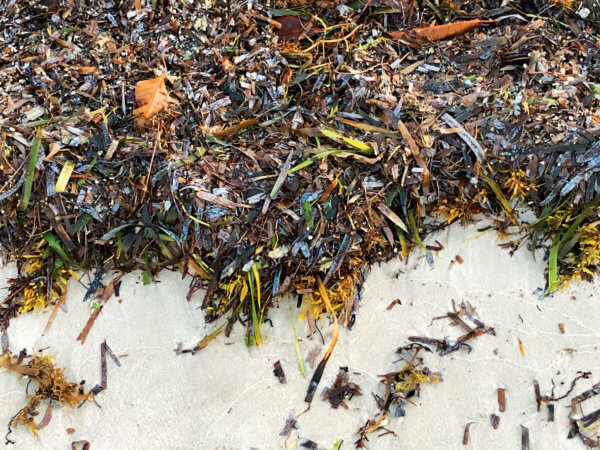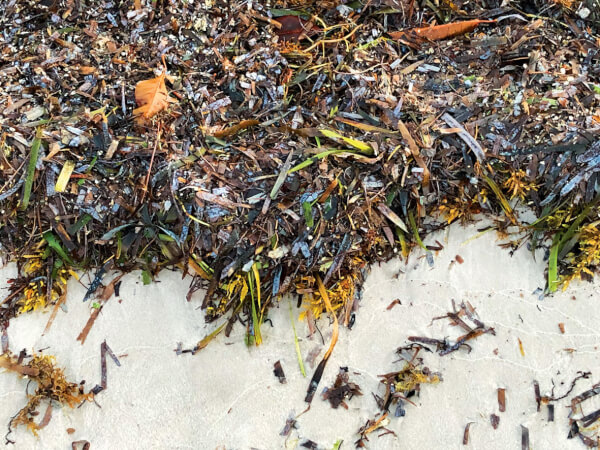Most people didn’t think twice about the occasional strand of seaweed. That changed in 2011 when huge mats of sargassum weed began floating south from the North Atlantic. The sheer masses of sargassum, scientifically known as a type of brown macroalgae or seaweed, got so bad that in 2018 there was a swath covering over 5,000 miles of ocean from the central Atlantic to the Caribbean and from West Africa to the Gulf of Mexico. Now, new research in Florida might show a way to turn this foul-smelling trash into a landscaping treasure.

“Our pilot study, funded by Florida Sea Grant, is designed to see how to safely and effectively compost sargassum,” says Ashley Smyth, Ph.D., assistant professor at the University of Florida’s Tropical Research and Education Center, in Homestead, FL. “We will determine how the arsenic concentrations change as a result of the composting and compare the sargassum compost to compost made from local yard waste. We will be collecting sargassum that has washed up on the beaches and mixing it with local yard waste and monitoring the composting process and arsenic concentrations.”

So far, Smyth and her team have started collecting sargassum from the state’s beaches and are fine-tuning some of their methods such as whether or not to include sand and other beach material collected in sample bins. The composting part of the study begins this summer.
“While our experiment could be replicated in the Caribbean, sargassum is a pelagic alga that floats in the water. As it moves around it picks up chemicals, bacteria and small animals, so the quality of the sargassum for compost and levels are arsenic would depend on where it was before it washes up on the beach. We are also comparing our results to compost made from local yard waste, which might also be different for the Caribbean compared to Florida. More would need to be done to see if the same method could be used for the Caribbean,” says Smyth. https://ifas.ufl.edu/





